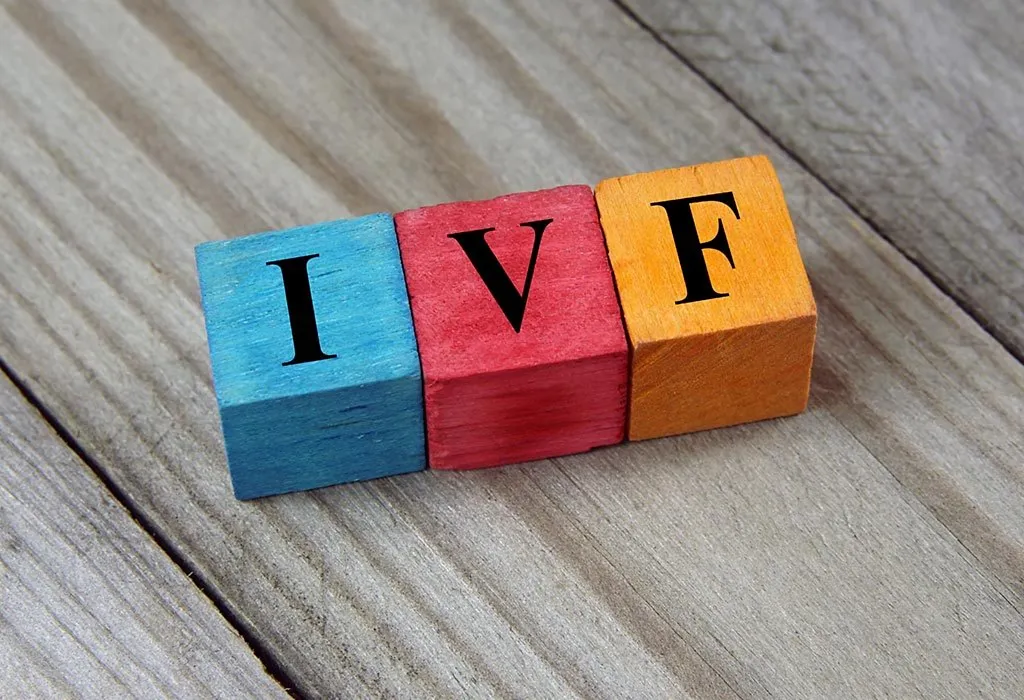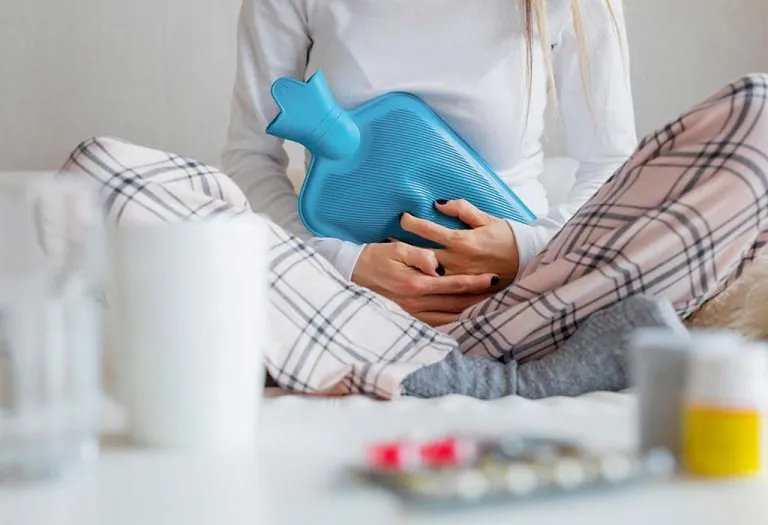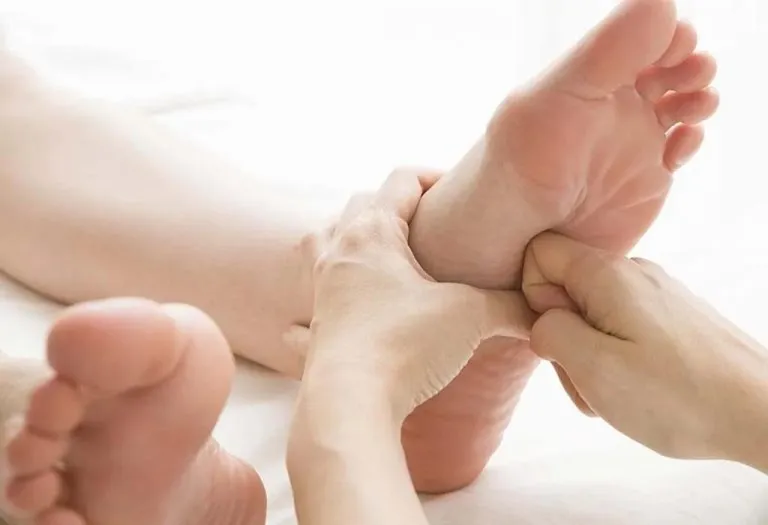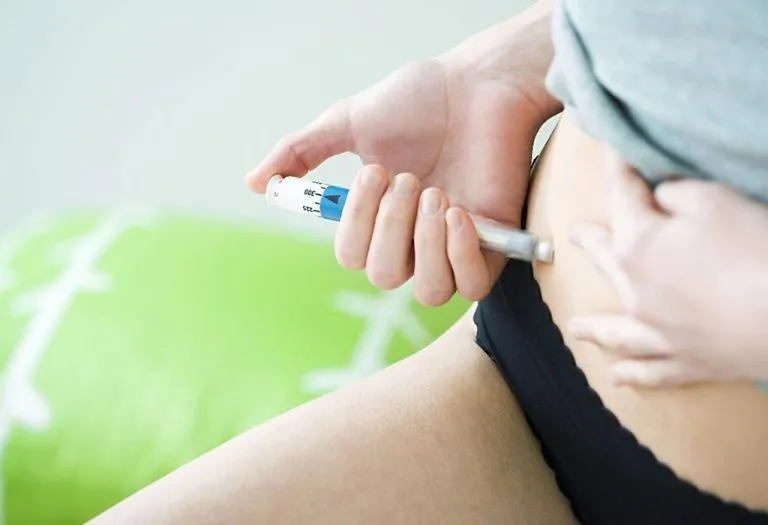Cramping and IVF (In Vitro Fertilization)

Couples who are planning to start a family but are unable to conceive can now successfully do so through IVF (In Vitro Fertilization), in which the viable eggs retrieved from a woman’s ovaries are combined with sperms in a lab setting and then implanted back in her uterus. As a woman undergoes IVF, her body can respond to the treatment, but there are some chances of side effects like cramping, spotting, and headaches.
Cramping is usually a recurring side effect of the IVF process which can manifest as a reaction to fertility medicines or due to the collecting and transferring process. In this article, we have tried to address most questions one could have about cramping after IVF embryo transfer. If you are planning to get an IVF, you will find this article pretty helpful in understanding all about cramping after IVF transfer.
Is Cramping After IVF Normal?
Yes, cramping post embryo transfer is fairly common. It can take place at any point during the process of IVF treatment for many reasons. Some patient’s body can react to undergoing hormone therapy as well as the intrusion of foreign objects entering the body to collect eggs and embed embryos with slight to moderate cramping. You may feel mild cramping after embryo transfer, particularly within 48 hours following the embryo transfer. You may also notice other symptoms like light spotting and tender breasts.
The occurrence of cramping during IVF is a temporary side effect for most patients which can be tackled by the use of a heating pad. Some may think of taking over-the-counter painkillers; however, we strictly recommend against it. It is always a good idea to consult your doctor before taking any painkillers so that it does not hamper embryo implantation.
Do Fertility Drugs Cause Cramping?
Fertility drugs used during IVF contain gonadotropins, which are similar to the hormones the body normally releases for egg stimulation in the ovary. Hence, the use of fertility drugs can result in excess chemicals and hormones in the body, due to which some patients may experience period-like cramps. Also, the medicines can have quite an impact on a patient’s reproductive organs. It can trigger fluid accumulation around the ovaries, leading to pelvic tenderness and discomfort.

Do Cramps Occur After Egg Retrieval?
In some cases, women may experience cramps following the procedure of egg retrieval. The method of extracting eggs from a patient’s body involves inserting a catheter, which can cause some light cramping in normal situations, but the intensity may differ greatly between women. The instance of cramping can last for about a week after the process of egg retrieval. It is a common side effect of IVF treatment and should not generate any unnecessary anxiety in women.
Does Cramping Occur After Embryo Transfer?
Mild cramping after embryo transfer may occur sometime within 7 to 10 days. The cramping typically feels like the cramps experienced during menstruation. A frozen embryo transfer can produce minor cramping in the days right after the procedure. But, it naturally subsides within 24 to 48 hours after the transfer is made. Cramping immediately after embryo transfer is likely to produce anxiety in women as they may perceive it as a sign of failed implantation. But this is not necessarily true. Cramping after embryo transfer can be a good sign and may happen when the embryo embeds itself into the uterine walls. However, it is essential to go in for a pregnancy test to check the results.
Most women going for an IVF might wonder if there are ways to reduce the cramping. As explained earlier, cramping is quite normal after an IVF, but yes, you can reduce the discomfort caused by cramping by following a few simple steps, which we shall talk about below.
How Long Does the Pain Last?
Wondering if cramping 5 days after IVF transfer is normal? Cramping can be a common symptom during the IVF (In Vitro Fertilization) process, particularly after embryo transfer. The duration and intensity of the cramping can vary from person to person. In general, mild cramping may occur immediately after the procedure and can last for a few hours to a couple of days. However, some individuals may experience cramping for a longer duration.
Tips to Reduce Cramping Discomfort
Here’s what you can do to reduce the cramping discomfort after an IVF session.
1. Do Not Lift Heavy Objects After the Transfer
You may like to go easy on yourself immediately after the transfer. Refrain from lifting or moving heavy objects. It is also recommended to avoid indulging in rigorous exercises.
2. Take Adequate Rest
Make sure you take proper rest after the transfer. Stay away from activities that may increase your stress and anxiety levels. Learn to relax with soothing music and deep breathing techniques, and remain positive.
4. Follow a Healthy Diet
Keep yourself suitably hydrated by getting enough fluids. Incorporate nourishing food items like fresh fruits, veggies, soups, and protein in your diet. Avoid unhealthy food and drinks like junk food and aerated drinks. You may also like to limit your caffeine intake.

3. Take Prescribed Pain Relievers
Ensure that you take your medications regularly as prescribed by the doctor. If you feel the need to take a painkiller to ease your discomfort, first, consult your doctor to prevent any possible harm to the process. Due to the sensitive nature of the IVF process, certain medicines, if taken during the embryo transfer, can place the patients at an increased risk of a failed IVF. Therefore, it is NOT advisable to self-medicate.
5. Use a Heating Pad
Applying a warm compress a few times upon the stretch of discomfort may bring about some relief and can reduce the cramping discomfort considerably. You can also use a hot water bottle wrapped in a soft hand towel. Soaking yourself in a tub of warm water or standing under a shower of hot water can also prove beneficial in combating the distress caused by cramping.
The tips mentioned above should help you deal with the discomfort caused by cramping; however, severe cramping might need immediate medical attention. Read on to know when you should consult a doctor.
When to Consult a Doctor?
Each woman is different and can experience varying symptoms. In certain cases, some women may experience no symptoms at all. In case the cramping turns severe and is accompanied by heavy bleeding or sensation of nausea at any step of the IVF procedure, seek medical assistance immediately. You must call your doctor when the prescribed painkillers fail to bring relief from the cramps as it may be indicative of serious issues like pelvic infection, ovarian torsion, ovarian haemorrhage, or IVF failure.
FAQs
1. Does cramping indicate success or failure in IVF?
Cramping alone is not a reliable indicator of the success or failure of IVF. Some individuals may experience cramping regardless of the outcome, while others may not experience it at all. It’s important to focus on other factors such as hormonal levels and pregnancy tests for a more accurate assessment.
2. Are there any measures to alleviate cramping after IVF?
Yes, there are several measures that may help alleviate cramping after IVF, including resting, staying hydrated, using over-the-counter pain relievers (if recommended by your doctor), and applying heat packs to the lower abdomen. However, it’s essential to follow your healthcare provider’s advice and avoid any activities or medications that they advise against.
3. Can cramping indicate implantation after IVF?
While some women may interpret cramping as a sign of implantation after IVF, it’s essential to note that cramping alone is not a definitive indicator of implantation. Other symptoms, such as spotting or changes in basal body temperature, may also occur during this time. It’s best to rely on pregnancy tests and follow-up appointments with your healthcare provider for confirmation of implantation and pregnancy.
It is understandable why cramping experienced during IVF can be a cause for concern. But, it must not always be considered a negative sign. It can also indicate successful embryo implantation. However, sometimes, there could be certain side effects of fertility drugs in the body. It may also be difficult to establish the success of the embryo transfer. Only a pregnancy test clinically performed can ascertain it.
References/Resources:
1. Santos. M. J, Mercader. A, et al.; Implantation rates after two, three, or five days of embryo culture; Placenta; Pubmed; https://pubmed.ncbi.nlm.nih.gov/14559025/; October 2003
2. In Vitro Fertilization; UT Southwestern Medical Center; https://utswmed.org/conditions-treatments/in-vitro-fertilization/
3. In vitro fertilization (IVF); Mayo Clinic; https://www.mayoclinic.org/tests-procedures/in-vitro-fertilization/about/pac-20384716
4. What is IVF?; Planned Parenthood; https://www.plannedparenthood.org/learn/pregnancy/fertility-treatments/what-ivf
5. IVF (In Vitro Fertilization); Cleveland Clinic; https://my.clevelandclinic.org/health/treatments/22457-ivf
6. Saravelos. S, Wong. A, Kong. G, et. al.; Pain during embryo transfer is independently associated with clinical pregnancy in fresh/frozen assisted reproductive technology cycles (Journal of Obstetrics and Gynaecology Research); National Library of Medicine; https://pubmed.ncbi.nlm.nih.gov/26916559/; June 2016
7. IVF – In Vitro Fertilization; American Pregnancy Association; https://americanpregnancy.org/getting-pregnant/infertility/in-vitro-fertilization/
Also Read:
Tips for IVF Success
Mini or Micro IVF Treatment
Conceiving Naturally After Failed IVF
Was This Article Helpful?
Parenting is a huge responsibility, for you as a caregiver, but also for us as a parenting content platform. We understand that and take our responsibility of creating credible content seriously. FirstCry Parenting articles are written and published only after extensive research using factually sound references to deliver quality content that is accurate, validated by experts, and completely reliable. To understand how we go about creating content that is credible, read our editorial policy here.



































